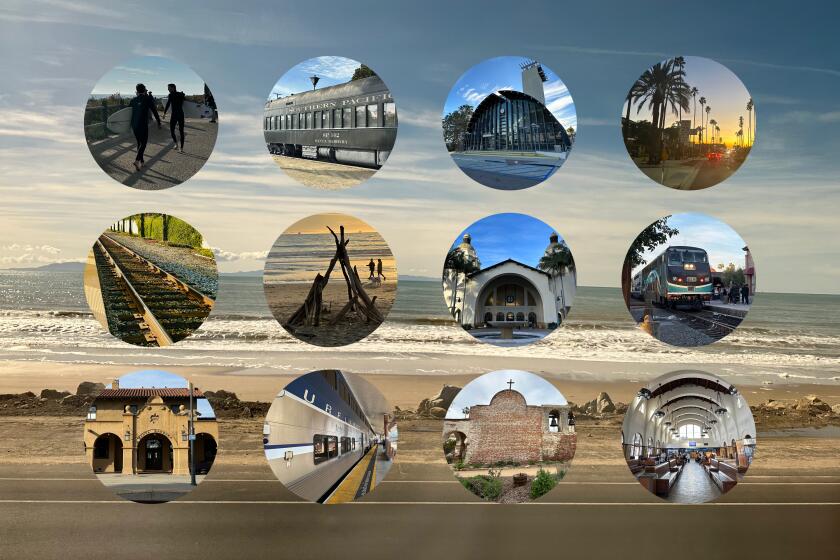Staying Safe When in Latin America
Visiting South America can be a challenge for young travelers, particularly because of safety problems, which range from strong currents and undertows at beaches to crimes against tourists.
In some cities, travelers’ packs have been sliced open and their valuables stolen at busy markets or on crowded public transportation.
The U.S. State Department (https://www.travel.state.gov/travelwarnings.html) says that backpackers are frequently targets in Quito, the capital of Ecuador, and that short-term armed kidnappings, in which criminals try to steal cash from the victims through ATMs, are frequent in Peru.
Several sources can help travelers avoid danger while traveling in South America. Earlier this year, the “Let’s Go” guidebook series, researched annually by Harvard students, introduced its first edition on Peru, Bolivia and Ecuador. The 622-page “Let’s Go: Peru, Bolivia & Ecuador” ($22.99) can help adventurers on student-style budgets explore the Amazon and the expensive but unforgettable Galapagos Islands, find Butch Cassidy’s grave or hike Peru’s Inca Trail.
For those who can’t swing the cost of the Galapagos, the guidebook suggests cheaper alternatives: Ecuador’s Isla de la Plata and Peru’s Islas Ballestas, which are similar to the Galapagos in flora and fauna. The guidebook includes suggested itineraries, city maps, sightseeing, transportation, accommodation recommendations and safety advice.
If you travel by bus, “Let’s Go” suggests you travel only by day because of the poor condition of many roads and that you take the costlier bus lines because drivers are changed frequently and the buses travel in convoys through rural areas.
Another excellent reference is the nonprofit South American Explorers Club. Members can get helpful pre-trip information and use Explorers clubhouses in Lima and Cuzco, Peru, and Quito. Members can also drop in for coffee, use the library, read trip reports, get advice on local adventure tour operators, get mail at the club and post messages for other travelers on the bulletin board. You can find helpful information on the Explorers Club Internet site, https://www.saexplorers.org, which includes a message board with postings by members, and links to current Canadian, American and British government travel advisories.
Memberships cost $50 per year, $80 per couple. Contact South American Explorers Club, 126 Indian Creek Road, Ithaca, NY 14850; telephone (607) 277-0488, fax (607) 277-6122.
Nine Latin American youth hostels in key gateway cities are offering visitors from North America a deal until Oct. 15: a free night when they spend four nights in any of their participating facilities. HI hostels provide separate men’s and women’s multi-bed rooms.
The participating hostels, part of the worldwide Hostelling International (HI) network, are the Catedral and Moneda hostels in Mexico City (the 209-bed Catedral hostel is near Templo Mayor, the most important surviving archeological site in the city); the Hostal Toruma in San Jose, Costa Rica; HI Bogota in Colombia; HI Quito in Ecuador; HI Lima in Peru (which has a swimming pool, garden and tourist information department); HI Santiago in Chile; HI Montevideo in Uruguay; and HI Rio in Rio de Janeiro, Brazil.
You can make reservations through the HI international booking system at affiliated hostels worldwide, on the Internet at https://www.hostelbooking.com, or in person or by fax at HI’s Santa Monica office, 1434 2nd St., Santa Monica, CA 90401; tel. (310) 393 3413, fax (310) 393-1769.
For a list of participating hostels, log on to https://www.iyhf.org. For photos and details, visit https://www.hostelslatinamerica.org.
* The Backpackers Ultimate Guide, which has been helping young travelers find budget accommodations in Europe for several years, has launched a new Web site for Australia, https://www.bugaustralia.com. It lists 500 Australian youth hostels and backpacker hostels and is adding reviews by BUG representatives. Independent travelers can post comments, too, using a system similar to the public book review system pioneered by Amazon.com.
BUG plans to add interactive hostel reviews on its two other Web sites: BUG Pacific (https://www.bugpacific.com), which caters to budget travelers visiting New Zealand, Fiji, Hawaii and other Pacific Islands, and BUG Europe (https://www.bugeurope.com).
When staying in a budget accommodation, always inspect the facility and the rooms first, and look for easily accessible fire exits, smoke alarms and so on.
Last summer, 15 young backpackers died in a fire in a Childers, Australia, hostel. That hostel, in a historic building, had received good reviews in reputable guidebooks.
Sign up for The Wild
We’ll help you find the best places to hike, bike and run, as well as the perfect silent spots for meditation and yoga.
You may occasionally receive promotional content from the Los Angeles Times.



